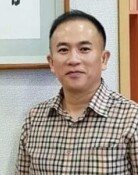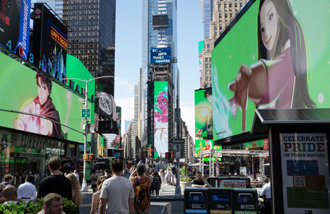Govern 5 years with a vision for a century
Govern 5 years with a vision for a century
Posted February. 26, 2013 09:34,
President Park Geun-hye was inaugurated to begin her five-year term as the Republic of Korea`s 18th president on Monday. In her inaugural speech, she said, I will open an era of new hope to achieve economic revival, the peoples happiness and cultural prosperity, presenting the three goals of her administration. She also displayed her commitment by saying, With the Korean people, I will take on the great challenge of creating a second `miracle of the Han River.` The new president is hoped to lead the country with a determination to have a vision for the next 100 years rather than just for her five-year term, while maintaining her initial commitment that she made in her speech.
Confucius said, The term politics suggests being right. Only when a leader can correctively establish himself or herself can he or she correct others. Correctively establishing oneself means training oneself, and correcting others means ruling a state. This old saying succinctly presents the essence of politics and leaders. Correcting oneself is not committing unethical or unlawful acts and not to be bound by personal interest, but instead handling matters in the fairest way possible. President Park should thoroughly manage herself and her family, relatives and aides, and thus remain a respected head of state when she leaves office.
The chief executive also has a responsibility to correctly establish the state as well. I will dispel public distrust of the government by establishing a clean, transparent and competent administration, she said. She must ensure that violation of laws and corruption by politicians and civil servants be sternly punished, and accelerate the implementation of political reform that the political circle promised to the public.
The economy is a matter of grave importance and serves as the foundation for the peoples livelihood. The economic situation in and around the country is far from being favorable. Depending on the management style of the new government, the Korean economy will embrace a crossroads that will determine if it goes toward becoming an advanced country or if it fails to raise the per capita income level of 20,000 U.S. dollars. On the global economic crisis, the president said, We can overcome (the crisis) only if we can develop a new path on our own, a proper diagnosis of reality.
Regulation of high-end service industries including medical tourism, finance, education and legal services that have high added value and are effective in creating jobs, should be drastically eased early in her administration. The president suggested the right direction with her theory of creative economy, which proposes the creation of new markets and jobs by expanding investments in information and communication technology, culture and contents service industries. Permanent staff should make concessions with their existing privileges, and thus reduce discrimination vis-à-vis temporary workers and ease the burden on companies.
In her inaugural speech, President Park again stressed economic democratization, which she had pledged in her election campaign together with a creative economy. She apparently made the comment in light of recent criticism that she might be backpedaling in her pledge to democratize the economy. Korean society is angry over unfair trade practices in which conglomerates rob smaller players of economic interests and corruption committed by big business and their owners. Such practices must be sternly punished without fail. Economic democratization, however, should not turn into bashing of corporations.
Economic polarization and social conflict are the country`s biggest issues. Korea is plagued with a combined household debt of 1,000 trillion won (921 billion U.S. dollars), the highest suicide rate in the Organization for Economic Cooperation and Development, and the world`s fastest aging population. These problems are time bombs that should be defused as soon as possible. A solid and extensive social safety net is needed to guarantee a minimum living standard for the underprivileged, and to protect individuals from social dangers including disease, unemployment and advanced age.
A major obstacle is lack of financial resources. For the Park administration to implement all of its election pledges, the astronomical sum of 135 trillion won (124 billion dollars) would be needed over the next five years. If Seoul blindly seeks to keep the pledges and thus damage fiscal soundness by offering excessive welfare and dampening economic growth, this will constitute a crime against future generations. The administration should shift from a policy of unconditional welfare to a policy of welfare for working people. This will ensure that welfare and growth move forward in tandem, while elevating the efficiency and transparency of the welfare delivery system. President Park should rule the country over the next five years with a vision for the next 100 years.
Korea cannot raise its low birth rate without expanding childbirth assistance to ensure that pregnancy is considered a blessing rather than a curse, and to create an environment in which families can rear children without worry. Only when the Park administration does that can women raise their status in Korean society as well as female employment, enabling the new chief executive to live up to expectations as Koreas first female president.
Koreans have traditionally been fervent believers in education, and Korean parents today have dedicated themselves to their childrens education. This very tradition has elevated a once dirt-poor country in Northeast Asia to the world`s 14th-largest economy last year. The knowledge information era of the 21st century, however, requires creative and all-around talents, a far cry from talent of the past.
In her inaugural speech, President Park said, Finding the potential of all students will be the driving force of national development. To achieve this goal, a specific plan is needed to form an educational environment allowing each individual to give fully realize his or her talents and abilities. The social atmosphere also needs to change for those with talent, not an impressive educational background, to get respect and chances to grow. More people need to receive public or continuing education so that anybody can exercise his or her ability regardless of background. The ladder of opportunity also needs restoration to enable mobility to the upper class.
Make culture thrive is one of the three major goals announced by President Park, who has pledged to be a leader synonymous with culture. Culture is both tangible and intangible heritage of the people and was recently recognized as a next-generation growth engine that creates jobs. "Hallyu," or the Korean Wave, is a good case in point. In this context, the new president should also support boosting the value of cultural spirit. Groundwork for cultural growth, including building more libraries and encouraging reading, needs to be done as soon as possible.
Protecting lives and property is a critical and basic responsibility of a country. President Park also pledged to "create a society in which law prevails over power, and justice shields the socially disadvantaged." In her election campaign, she designated sexual, domestic and school violence and junk food as four social evils and pledged to eradicate them. The president also promised to add 4,000 police officers each year over her five-year term, which is expected to contribute to better public security.
Prosecutorial authorities need sweeping reform given that public trust in prosecutors plummeted under the previous administration. The abolition of the central investigation department of the Supreme Prosecutors Office is not enough. The president should fulfill her pledge to set up an independent counsels office to investigate corruption by the relatives and confidants of the president and press charges against them.
Environment is an important issue in this global era. Climate change has caused natural disasters to increase in form, frequency and effect each year. Investment in sustainable environment is a global and not regional task for the Korean Peninsula. Former President Lee Myung-bak has made a strong point on the importance of green growth and set up a basic plan. The Park administration, however, still bears the responsibility of helping the green growth strategy take root and grow to make it a basis for public safety and economic growth.
President Park was elected by pledging grand integration of the country. One of the biggest obstacles of Korean society is political and ideological divisions. One important task is to help political prisoners and victims under the rule of her father, former president Park Chung-hee, to clear their names and provide monetary compensation, including victims of the 1979 pro-democracy protests to scrap the value-added tax. The new leader should also get government bodies to grow considerate of the socially disadvantaged and proactively hire them, including female high school graduates and the disabled. Developing marginalized regions such as the Jeolla, Chungcheong and Gangwon provinces is another assignment for the president, as her father paved the way for balanced growth by building the cross-country Gyeongbu Expressway.
The environment for national security and diplomacy is changing more rapidly than before. I will not tolerate any behavior that threatens the peoples lives and the security of this country, President Park said, adding, Through a trust process on the Korean Peninsula, I will lay the foundation for a happy and reunited era where all Koreans in the South and North live happy and abundant lives enjoying freedom. She also said, I will move forward step by step to build trust between the two Koreas based on a strong nuclear deterrent. This approach seems to leave the door open for communication with Pyongyang while denying the Norths nuclear ambition. The Park administration should utilize policies of both dialogue and deterrence to persuade the North to give up on its reckless ambition to test the Souths new government and join the road to peace and co-existence.
South Korea`s alliance with the U.S. is a key diplomatic asset that needs continuous strengthening. The new administration in Seoul should help the alliance evolve into a mutually reciprocal relationship transcending the existing strategy aimed keeping China in check while depending on the U.S. disproportionally. While providing economic opportunity, China remains at odds with South Korea over North Korea and history. Building trust between Seoul and Beijing will contribute to peace and security of Northeast Asia. Strained relations with Japan, with whom South Korea shares the value of democracy and market economy, can worsen the security and the economy of East Asia. President Park should separate history from national interests.
When it comes to diplomacy and security, multi-focused strategies are necessary to see both short-term and long-term businesses. To control the fate of the country by itself, comprehensive strategies and views must be secured to maximize national interests while handling both bilateral and multilateral relations at the same time.
President Park moved in to the presidential office Monday, a place protected from the outside. If she listens only to close confidants who say things she wants to hear, she cannot make sound judgments. She must also listen to criticisms of her to prevent isolation from the public. Her government should not invite complaints of being a self-righteous and authoritative government that is hard to communicate with by proactively leading dialogue, compromise, co-existence and co-prosperity with opposition parties.
History is often the result of time and human efforts. President Park can build an abundant, strong and respected Republic of Korea under her leadership that brings together all the capabilities and assets of the country.
Headline News
- N. Korea redefines S. Korea as ‘hostile state’ in revised constitution
- Samsung develops graphic DRAM with industry-leading capacity and speed
- Three questions allegedly leaked via text message during Yonsei Univ. essay test
- China to inject 340 trillion won in loans to support real estate sector
- Dodgers beat Mets to take 2-1 lead in NLCS







